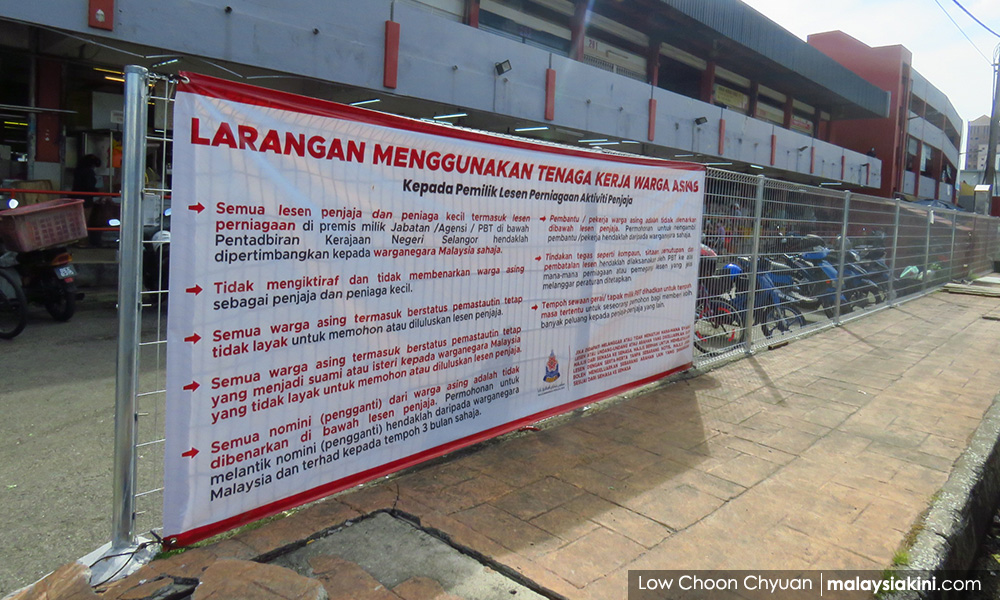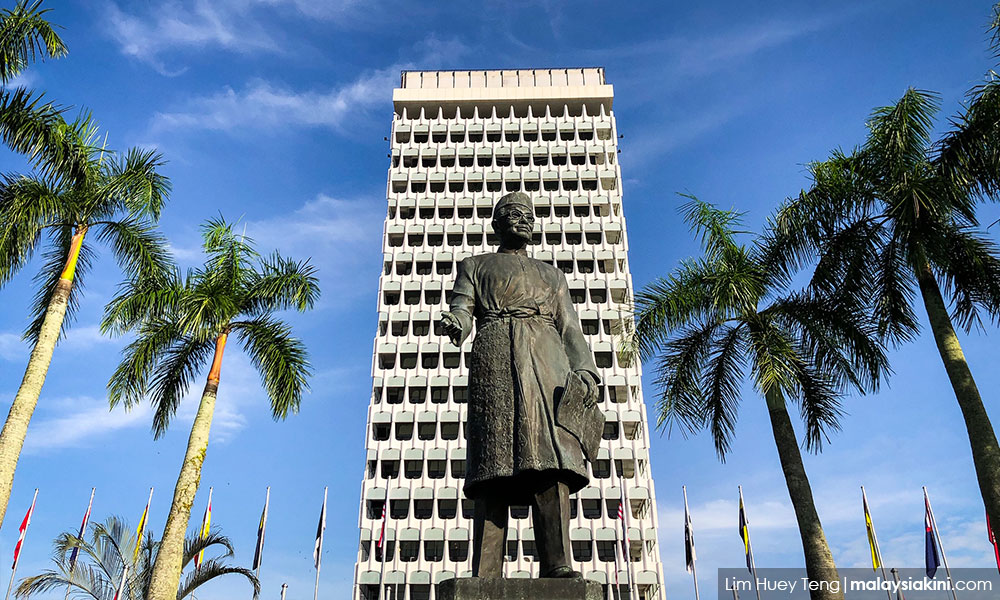
R Nadeswaran
Published: Sep 21, 2024 10:06 AM
COMMENT | At the height of the movement control order following the outbreak of Covid-19, the Petaling Jaya City Council closed the wet market indefinitely.
With a view to reopening after the casualty numbers dropped, the council called for a meeting of all stallholders to brief them on hygiene and cleanliness requirements.
Among those who attended were a few who had never stepped into the market but were licensees, hence their presence.
They were the “Pajak Kings” who had leased their licences to third parties, including migrants, and collected a princely sum in rent every month.
Rent-seeking, in a small way, was condoned and acknowledged as an acceptable practice by successive governments of the past because it enriched some members of the ruling party.
Published: Sep 21, 2024 10:06 AM
COMMENT | At the height of the movement control order following the outbreak of Covid-19, the Petaling Jaya City Council closed the wet market indefinitely.
With a view to reopening after the casualty numbers dropped, the council called for a meeting of all stallholders to brief them on hygiene and cleanliness requirements.
Among those who attended were a few who had never stepped into the market but were licensees, hence their presence.
They were the “Pajak Kings” who had leased their licences to third parties, including migrants, and collected a princely sum in rent every month.
Rent-seeking, in a small way, was condoned and acknowledged as an acceptable practice by successive governments of the past because it enriched some members of the ruling party.

An MBPJ banner outside the PJ wet market prohibiting the hiring of migrant workers by licence holders
Hence, the demand for such arrangements thereby provides the proviso of creating more rent-seekers.
Hardly unique
Such a practice is replicated in scores of other stalls and eateries around the country, where this kind of Ali Baba (or Ali Bangla as it is known these days) enterprise is thriving.
The authorities previously saw nothing wrong with the practice if they had a share of the spoils.
I had previously advocated a licensee-operated system that would have ended this kind of trade but it was ignored, and old habits are hard to correct and have become institutionalised.
But then, this is not restricted to hawker stalls. Titled people living in million-ringgit bungalows also have taxi permits and contracts to supply goods and services, which are then leased to a third party to execute the requirements.
In July last year, Prime Minister Anwar Ibrahim announced that the government would formulate laws to end “Ali Baba” business practices.
Hence, the demand for such arrangements thereby provides the proviso of creating more rent-seekers.
Hardly unique
Such a practice is replicated in scores of other stalls and eateries around the country, where this kind of Ali Baba (or Ali Bangla as it is known these days) enterprise is thriving.
The authorities previously saw nothing wrong with the practice if they had a share of the spoils.
I had previously advocated a licensee-operated system that would have ended this kind of trade but it was ignored, and old habits are hard to correct and have become institutionalised.
But then, this is not restricted to hawker stalls. Titled people living in million-ringgit bungalows also have taxi permits and contracts to supply goods and services, which are then leased to a third party to execute the requirements.
In July last year, Prime Minister Anwar Ibrahim announced that the government would formulate laws to end “Ali Baba” business practices.

He said such a practice negatively impacts the economy, causing an estimated one percent in losses to gross domestic product.
In a statement, Anwar said such practices cover acquisitions, licensing, permits, quotas, and giving subsidies and grants.
The task of formulating policies and legislation to stamp out “Ali Baba” practices was to be headed by the Economy Ministry and the Attorney-General’s Chambers.
All but silence since
Five months later, Economy Minister Rafizi Ramli said the proposed “anti-Ali Baba” legislation to end rent-seeking practices could be used against owners who abuse their business licences, which leads to an influx of foreign-controlled establishments in the city.
Taking to X, he responded to another X user who raised concerns over an influx of migrants benefiting from government subsidies or facilities intended for citizens.

Economy Minister Rafizi Ramli
“The anti-Ali Baba legislation will allow action to be taken against Malaysians who give ‘Ali Baba licences’ to migrant workers without meeting the conditions,” he said.
In response, the Federation of Malaysian Manufacturers (FMM) wanted the “anti-Ali Baba” law to be implemented promptly to deal with the issue of undocumented migrant workers in the country.
“The influx of migrant workers for purposes other than employment is indeed a cause for concern and a national problem which must be dealt with comprehensively and transparently,” said its president, Soh Thian Lai.
It has been 14 months since Anwar’s announcement, and the only news we had was from Rafizi, who told Parliament in February that the government is conducting a study on the framework for the Anti-Rent-Seeking Act.
In a written reply published on Parliament’s website, the Economy Ministry said input from stakeholders will be obtained for a draft of the act.
“The anti-Ali Baba legislation will allow action to be taken against Malaysians who give ‘Ali Baba licences’ to migrant workers without meeting the conditions,” he said.
In response, the Federation of Malaysian Manufacturers (FMM) wanted the “anti-Ali Baba” law to be implemented promptly to deal with the issue of undocumented migrant workers in the country.
“The influx of migrant workers for purposes other than employment is indeed a cause for concern and a national problem which must be dealt with comprehensively and transparently,” said its president, Soh Thian Lai.
It has been 14 months since Anwar’s announcement, and the only news we had was from Rafizi, who told Parliament in February that the government is conducting a study on the framework for the Anti-Rent-Seeking Act.
In a written reply published on Parliament’s website, the Economy Ministry said input from stakeholders will be obtained for a draft of the act.

“The government aims to present this Act in Parliament by the year’s end,” he said.
Will we see it as law in three months’ time, or will delays be caused by “representation” from affected parties?
Why is it taking such a long time for the government to promulgate, debate, and present bills in Parliament, which subsequently became laws?
Through such a system, only a few well-connected elites enrich themselves at the expense of most hardworking Malaysians. Hopefully, it will be done as promised.
R NADESWARAN is a veteran journalist who writes on bread-and-butter issues. Comments: citizen.nades22@gmail.com

Anwar Ibrahim was a rent-enabler extraordinaire the last time he was in power, before his fall.
ReplyDeleteNow I don't believe he has really changed.